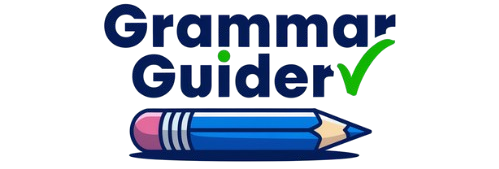Understanding how “run” changes in the past tense and past participle is important for speaking and writing correctly. The verb run is an irregular verb, so its forms don’t follow regular rules. Knowing how to use them will help you.
In the past tense run becomes ran. The past participle form of run is have run or has run. Using these forms correctly will make your sentences clearer. It’s important to practice these forms to improve your English grammar skills.
Past Tense of “Run”
The past tense of run is ran. You use it when talking about something that happened in the past. For example “I ran to the store yesterday.” It is important to remember that ran is the correct form in the past tense.
| Subject | Past Tense of “Run” |
|---|---|
| I | ran |
| You | ran |
| He/She/It | ran |
| We | ran |
| They | ran |
Examples of Past Tense “Run”
Here are some examples of the past tense of run:
- I ran to the park yesterday.
- She ran in the race last week.
- We ran together in the morning.
- He ran five miles yesterday.
- They ran to catch the bus.
Past Participle of “Run”
The past participle of run is have run or has run. You use it with helping verbs like have or has. For example “I have run five miles today.” It shows an action that is complete or finished.
| Subject | Past Participle of “Run” |
|---|---|
| I | have run |
| You | have run |
| He/She/It | has run |
| We | have run |
| They | have run |
Examples of Past Participle “Run”
- I have run three miles today.
- She has run every morning this week.
- They have run the race before.
- He has run out of time.
- We have run many errands today.
Using “Run” in Different Tenses
- Present tense: “I run every day.
- Past tense: “I ran to the store yesterday.
- Present participle: “She is running right now.
- Past participle: “They have run three miles today.
Tips for Using “Run” Correctly in Your Writing
Here are some tips for using run correctly in your writing. Use ran for the past tense and have run or has run for the past participle. Practice using run in different tenses to make your writing clearer and more accurate.
- Always use ran for the past tense.
- Use have run or has run for the past participle.
- Pay attention to the subject of the sentence. Use have run with I, we, and you. Use has run with he, she, or it.
- Practice using run in different tenses to improve your writing.
- Check your sentences to make sure you are using the correct form of run.
FAQ’s
What is the past tense of “run”?
The past tense of run is ran. Use it when talking about something that happened in the past.
What is the past participle of “run”?
The past participle of run is have run or has run. Use it with helping verbs.
How do I use “ran” in a sentence?
You can say “I ran yesterday.” This shows the action is in the past tense.
How do I use “have run” in a sentence?
You can say “I have run five miles today.” It shows a completed action in the past participle.
When do I use “has run”?
Use has run with he, she, or it. Example “She has run the race.”
Why is it important to understand the past forms of “run”?
Knowing the correct forms ran and have run helps you write and speak clearly in the right tense.
Conclusion
Understanding how run changes in the past tense and past participle will help you write and speak more clearly. When you use ran for the past tense you show that an action happened in the past. The past participle form have run or has run, helps you describe something that is complete. These changes are important for speaking and writing in the correct tense.
With practice you will feel more confident using run in sentences. Knowing when to use ran and when to use have run or has run will make your grammar stronger. By improving your understanding of verb forms like run, you will be able to communicate better in English. Keep practicing and soon these changes will feel natural in your writing and conversations.

Jacob Harrison is the seasoned writer behind Grammar Insights, with over nine years of experience in the field. Passionate about language, he shares practical tips and strategies to help readers enhance their grammar and writing skills. With a friendly approach, Jacob makes learning accessible and enjoyable for everyone.

